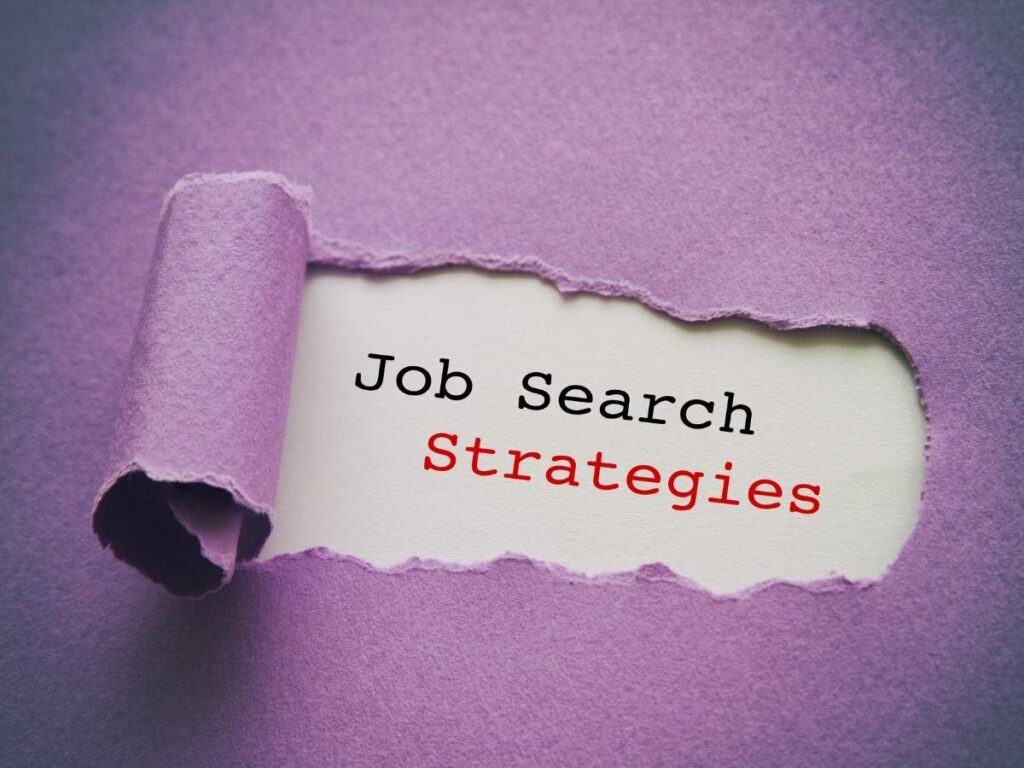Looking for a new job?
If you’re looking for a new job this year, you’re not alone.
Research by LinkedIn revealed that more than 60% of Irish workers are considering changing their jobs in 2022.
And in the UK, almost a third of employees will be looking for new jobs in the first half of the year.
That’s a lot of competition you’re up against.
But that’s missing the point. It’s not about how many people you’re up against, it’s about applying for the right roles with the right companies.
It’s tough to get your ideal job if you don’t know the right things to do.
So, if you’ve been struggling to get a job, what I’m about to tell you will help you transform your approach.
Because there’s a better way to get results fast — whatever your age, whatever stage you’re at in your career, and whatever the state of the job market. And it all starts by avoiding these five job hunting mistakes.
The top 5 job hunting mistakes
If you’re struggling to find a job, here’s what you might be doing wrong and what you should try doing instead.
1. Spending too much time applying for jobs online

Are you spending your job search time on job sites? Are you applying for jobs that match your skills, but not getting any interviews or offers?
Searching and applying for jobs online is the approach most people use to find work.
But this is part of the problem.
Because when you apply for jobs online, you’re competing against hundreds of other applicants. And this drastically reduces your chances of success.
According to TopInterview, 75% of CVs are rejected before they even reach the hiring manager. And only around five of all those applicants will actually get a face-to-face interview. Yikes!
But this isn’t even the biggest problem with applying for advertised jobs.
The biggest problem is that 80% of vacancies are filled without ever being advertised.
That’s right. You’ll probably never hear about 80% of vacancies, because they’re never publicly advertised or posted online.
This is what we call the hidden jobs market — and it’s something you should know about.
What is the hidden jobs market?
This is where companies fill their job roles either internally, through referrals or through direct applications (CVs that are sent on spec to the HR manager).
So how do you tap into this treasure trove of great jobs?
Before I tell you how, let me first explain what happens in the hiring process so you can understand the bigger picture.
Hiring new staff costs companies a lot of time and money. They know that when they place an ad, they’ll potentially receive hundreds of applications. These will all need to be read and reviewed to find a handful of applicants for interview.
It’s not surprising that many companies prefer to avoid all that.
And, before they post a vacancy online, a hiring manager will typically refer to their contacts, colleagues and databases to find suitable candidates.
Not only is this less of a chore, but it often means they can find someone who comes recommended by someone they know.
How to access the hidden jobs market
The best way to access the hidden jobs market is by networking, making contacts and building relationships — both on and offline.
So what does this mean in practical terms for you?
I would suggest you spend 80% of your job search time doing this and no more than 20% applying for jobs online.
Even if you don’t like networking, reaching out to an old work colleague or friend can open up a world of possibilities.
I’ve seen this strategy work for countless people and even with a little work, it can give you a big pay off.
2. Starting your job search without a plan

How much thought have you given to the jobs you’re applying for? Are they jobs that will interest and inspire you? And are the companies you’re applying to the kind you really want to work for?
On any given working day, we spend around 50% of our waking hours at work. So you shouldn’t just be focusing on how to find an average job — but on how to find a job you love.
And that’s why you need a plan.
How to find a job you love
Any effective job search should start with a clear plan. So, I’d advise you to start by asking yourself some questions.
- What do you most want to change about your job? What do you want to be doing during your working day? And what don’t you want to be doing?
- Will the work be challenging enough for you? Will you find it meaningful and rewarding?
- Will there be opportunities to learn, develop and progress?
- Do the company’s values align with your own? And does it have the kind of culture you want to work in?
- Think about the location. If there’s a commute, how easy is it, how long will it take and how much will it cost? Is it reasonable for you and will you be happy commuting in the long term?
Answering questions like these will give you more clarity and help you focus on what you really want and where you’re likely to find it.
So before you leave your current company, start thinking about these questions.
There’s an old saying in recruitment which goes like this... you need a reason to leave your current job and a reason to join your next company.
Ask yourself these questions and it will help you get clear what your ideal job is in your next company.
Then it’s easier for you to build a job hunt plan around that ideal job.
3. Not taking time to tailor your CV

Are you really selling yourself on your CV? Does it give you an edge over all those other applicants? Is it making companies or recruiters want to get in touch with you?
A good CV is the bread and butter of your job hunt. Yet I’m amazed by how many average CVs are used by people applying for jobs.
You could be a superstar in real life, but an average CV makes you look average, too.
If you’re sending the exact same version of your CV with every job application, you’re not likely to be successful — because there’s no such thing as a one-size-fits-all CV.
In a survey by CareerBuilder.com, employers were asked what attributes would cause them to pay more attention to certain CVs.
- 61% said a CV that’s customised for the open position
- 49% said a CV that’s accompanied by a covering letter
- 26% said a CV that’s addressed to the hiring manager by name.
If you want results, you should tailor your CV and covering letter for each job you apply for.
How to tailor your CV
There are various things you can do to tailor your CV.
For example, you could rewrite your summary, highlight certain skills, or include more relevant experience and achievements.
Look at the job description and what it’s asking for. Make sure your CV includes suitable information and examples that will show the company you’re the right candidate for the job.
I can tell you that taking the time to tailor your CV works. Partly because it will show that you’ve made an effort and you’re serious about the job. And partly because so many other applicants won’t bother.
Make that effort to improve your CV and it will make a big difference to you.
4. Not using LinkedIn effectively

Do you have a LinkedIn profile? Is it fully filled out and up to date? Is it doing you justice, or does it need improvement?
In the past, recruitment agencies had their own databases of candidates. But now, Linkedin has replaced all that and everybody has their profile online.
What does that mean for you?
It means that having a Linkedin profile isn’t a nice to have, it’s a must-have.
Linkedin is one of the most important tools in your armoury, when you’re job hunting. So are you using it properly?
Networking on LinkedIn is one of the best ways to access the hidden jobs market and the 80% of jobs that are never advertised.
So if you’re not on the platform and using it effectively, you could be missing out on those golden opportunities.
How to use LinkedIn effectively
There are lots of ways you can use LinkedIn more effectively when you’re job hunting. Here are a few examples:
Using Linkedin properly is like having an advertisement running 24/7 — letting the world know what you have to offer.
And if you use Linkedin to your full advantage, you’ll get called about jobs much more often.
5. Not using recruiters to your best advantage

I have something to admit. I owned my own recruitment agency for over 10 years and I think that most people don’t know how to use them correctly.
Recruitment agencies are a brilliant resource in your job hunt, if you know what you’re looking for and how they can help.
So why use a recruitment agency?
Because they have access to vacancies you won’t find anywhere else.
They also have the inside story on what companies are looking for. What I mean is that a lot of advertised job specifications are kept generic to appeal to a lot of people. But when you talk to a recruiter, they can give you the inside track to put you ahead of the competition.
A recruitment agency also gives impartial advice on your CV and interview preparation.
How to use a recruitment agency in your job search
To use recruiters effectively, you should find suitable agencies that deal specifically with the field or industry you want to work in.
Make sure your current CV is up to date and in the agency’s preferred file format. This is usually a plain text word document that will work with their automated screening system. These systems enable them to filter the most suitable applicants for each position.
Send copies of your CV to all the suitable agencies that cover your area — not just one or two.
If the recruiter thinks you’ll fit the criteria their clients are looking for they’ll file your CV and contact you when they have a suitable vacancy. If not, they won’t contact you. It’s nothing personal, it’s just the way it works.
Recruitment agencies can be a great asset in your job hunt.
Make the effort to build a relationship with several agencies to maximise your chance of success. Keep in regular contact with them and make sure they know who you are and what you’re looking for.
When they have the right job available, the first people they reach out to are the applicants they know, like and trust.
Summary
If you’re job hunting, you want to be in control and feel like you’re making things happen.
There are several ways to achieve this:
Do you need help with your career?
If you're looking to find a new job, maybe I can help. I’m Terry O’Brien and over the last two decades I've helped hundreds of people land their dream job. If you'd like support with your job hunting plan, CV, LinkedIn or interview skills, contact me at terry@terryobriencareers.com or book a complimentary call.


